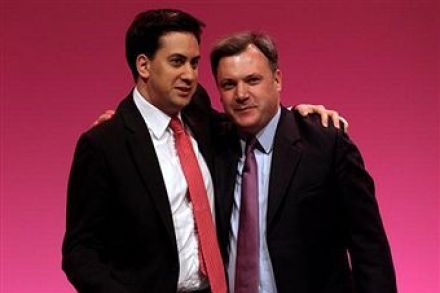Miliband is marching to the wrong drum
Ed Miliband’s decision to address today’s anti-cuts march is a strategic mistake. It makes him look like the tribune of an interest group not a national leader. He’ll also be tarred by association, fairly or not, if these scuffles we’re seeing turn into anything more serious. In his speech, Miliband tried to place the march in the tradition of those for female emancipation, civil rights and against apartheid. But this rhetoric doesn’t work as, given Miliband’s commitment to the Darling plan, we are talking about relatively modest differences about the pace of cuts. One other thing that was striking about the speech is Miliband’s attempt to accuse Cameron of practicing



















